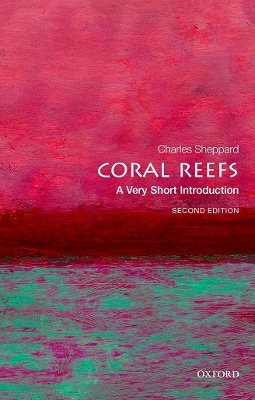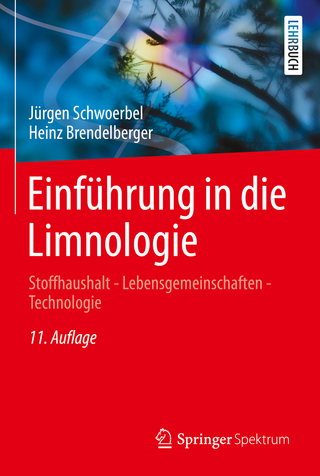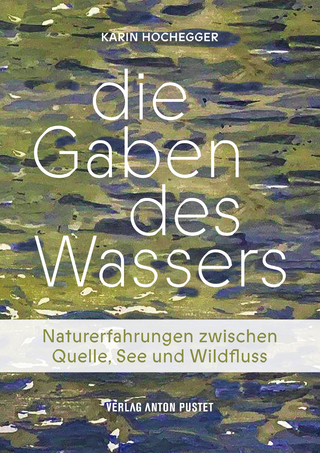
Coral Reefs
A Very Short Introduction
Seiten
2021
|
2nd Revised edition
Oxford University Press (Verlag)
978-0-19-886982-5 (ISBN)
Oxford University Press (Verlag)
978-0-19-886982-5 (ISBN)
Coral reefs are among the most biodiverse of ecosystems. Here, Charles Sheppard tells the fascinating story of how and where coral reefs are formed and the variety of marine life they support. He highlights the severe threats they face due to climate change, pollution, and over-exploitation, and the ongoing conservation efforts to save them.
Very Short Introductions: Brilliant, Sharp, Inspiring
Coral reefs are among the most beautiful, and most diverse, of ecosystems. Early seafarers were wary of them, naturalists were confused by them, yet many coastal people benefited greatly from these mysterious rocky structures that grew up to the surface of the sea. They have been rich in their supply of food, and they provided a breakwater from storms and high waves to countless coastal communities that developed from their protection. Their scale is enormous and their value high. Found in countless locations around the world, from the Indo-Pacific coral reef province to the Caribbean and Australia, they support both marine and human life.
But today coral reefs are in trouble, with many dying or suffering from over-exploitation, pollution, and the warming and acidification of the oceans. Understanding reefs, their conservation and management, is vital, and so is conveying this to authority if we are to preserve these remarkable ecosystems. In this Very Short Introduction Charles Sheppard describes the complex structure and interdependencies of a reef, how reefs have evolved, the diversity of marine life that they support, and their importance to the human population who live beside them. This new edition describes the latest research on the complex symbioses of coral animals with microorganisms. It also highlights the scale of the challenge facing our reefs today, following recent ocean heatwaves - part of wider climate disruption - that killed half the world's reefs, and considers what can be done to preserve these essential and vibrant ecosystems.
ABOUT THE SERIES: The Very Short Introductions series from Oxford University Press contains hundreds of titles in almost every subject area. These pocket-sized books are the perfect way to get ahead in a new subject quickly. Our expert authors combine facts, analysis, perspective, new ideas, and enthusiasm to make interesting and challenging topics highly readable.
Very Short Introductions: Brilliant, Sharp, Inspiring
Coral reefs are among the most beautiful, and most diverse, of ecosystems. Early seafarers were wary of them, naturalists were confused by them, yet many coastal people benefited greatly from these mysterious rocky structures that grew up to the surface of the sea. They have been rich in their supply of food, and they provided a breakwater from storms and high waves to countless coastal communities that developed from their protection. Their scale is enormous and their value high. Found in countless locations around the world, from the Indo-Pacific coral reef province to the Caribbean and Australia, they support both marine and human life.
But today coral reefs are in trouble, with many dying or suffering from over-exploitation, pollution, and the warming and acidification of the oceans. Understanding reefs, their conservation and management, is vital, and so is conveying this to authority if we are to preserve these remarkable ecosystems. In this Very Short Introduction Charles Sheppard describes the complex structure and interdependencies of a reef, how reefs have evolved, the diversity of marine life that they support, and their importance to the human population who live beside them. This new edition describes the latest research on the complex symbioses of coral animals with microorganisms. It also highlights the scale of the challenge facing our reefs today, following recent ocean heatwaves - part of wider climate disruption - that killed half the world's reefs, and considers what can be done to preserve these essential and vibrant ecosystems.
ABOUT THE SERIES: The Very Short Introductions series from Oxford University Press contains hundreds of titles in almost every subject area. These pocket-sized books are the perfect way to get ahead in a new subject quickly. Our expert authors combine facts, analysis, perspective, new ideas, and enthusiasm to make interesting and challenging topics highly readable.
Charles Sheppard O.B.E. is Professor Emeritus in the School of Life Sciences at the University of Warwick, and Visiting Professor in the School of Ocean Sciences at Bangor University. His research focuses on community ecology and on responses to climate change. He is the author or editor of several books including The Biology of Coral Reefs (2nd edition OUP, 2018).
1: Geology or biology?
2: Ancient reefs and islands
3: The architects of a reef
4: The resulting structure - a reef
5: Microbial and planktonic engines of the reef
6: Reef fish and other major predators
7: Regional scale pressures on reefs
8: Global scale pressures on reefs - Climate change
9: Doing something about it
Further Reading
Index
| Erscheinungsdatum | 23.03.2021 |
|---|---|
| Reihe/Serie | Very Short Introductions |
| Zusatzinfo | 20 black and white images |
| Verlagsort | Oxford |
| Sprache | englisch |
| Maße | 110 x 174 mm |
| Gewicht | 120 g |
| Themenwelt | Naturwissenschaften ► Biologie ► Limnologie / Meeresbiologie |
| Naturwissenschaften ► Biologie ► Ökologie / Naturschutz | |
| Naturwissenschaften ► Geowissenschaften ► Geografie / Kartografie | |
| ISBN-10 | 0-19-886982-7 / 0198869827 |
| ISBN-13 | 978-0-19-886982-5 / 9780198869825 |
| Zustand | Neuware |
| Informationen gemäß Produktsicherheitsverordnung (GPSR) | |
| Haben Sie eine Frage zum Produkt? |
Mehr entdecken
aus dem Bereich
aus dem Bereich
Stoffhaushalt - Lebensgemeinschaften - Technologie
Buch | Softcover (2022)
Springer Spektrum (Verlag)
44,99 €
Naturerfahrungen zwischen Quelle, See und Wildfluss
Buch | Hardcover (2024)
Verlag Anton Pustet Salzburg
30,00 €


